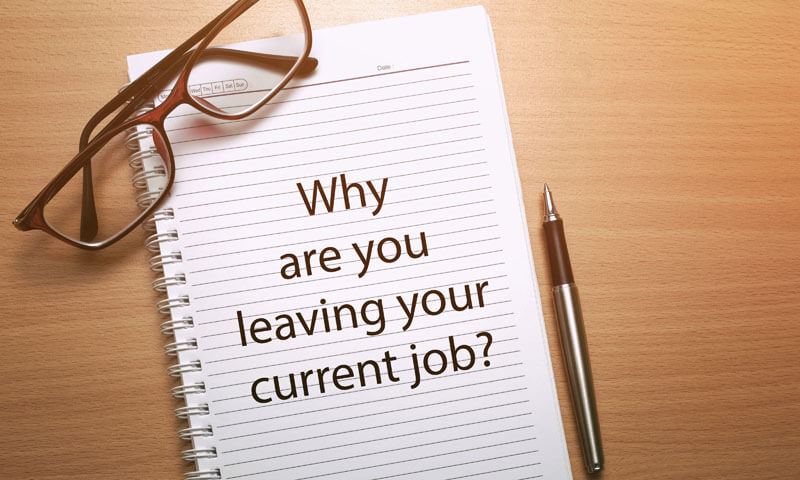
There are certain people who seem to get every job they interview for and others who seem to lose the job in the interview. Interviewing has its own set of rules and is something that everyone needs to understand.
Here are the major mistakes that people make in interviews.
A. Saying Something Negative About Your Former (or Current) Employer(s).
If you are looking for a job, the odds are that the organization you are interviewing with already realizes that the situation with your former employer was not ideal. That's perfectly fine. However, when you say something negative about your former employer, this makes you look angry, bitter and like someone who could not get along in that environment. The interviewer will wonder if you will have the same problems again if they hire you.
More importantly, it makes you look disloyal. If you say something negative about your former employer, then the interviewer will know you are likely to do the same thing to them in the future.
There are a number of ways to answer why you are leaving (or left) a job without trashing an employer:
- You want a more team-oriented environment.
- The commute is too long.
- You want more responsibility.
- You've always wanted to work for the company you are interviewing with.
- There is no room for advancement at your existing company.
- You want to work at a larger company.
- You want to work at a smaller company.
- The new company is going in a direction that is exciting to you.
- You have heard really good things about the new company from other employees.
B. You Bring Up Salary and Benefits
While the amount of money the position pays (and benefits) is obviously important, it is annoying to interviewers when this is brought up early in the interviews. The employer's purpose in interviewing you is to see if you can do the job and if you will fit in with the employer (i.e., what you can do for them). In addition, when you bring up salary and benefits, you seem to be presuming you already have the job. For a more visual guide on avoiding interview pitfalls, watch our video “21 Major Job Interview Mistakes to Avoid at All Costs,” which breaks down each mistake with practical examples.
I have seen many people say something like this in the interview: "The job only pays that? I'm making much more than that right now."
If the interviewer is still trying to determine whether you are right for the job, it is not exactly a good idea to bring up your salary requirements at that point.
If an interviewer really likes you, they will ask how much you are currently making, or made in your last job, so they can offer you the same amount (or more). Additionally, your goal in the interview is to make the employer like you and want to hire you. If you start talking about money early on, you will put the brakes on that process and annoy them.
C. Asking Any Question that Shows You Might be a Problematical Employee or Might Not Be Fully Committed to the Job
It is so stupid that people disqualify themselves from jobs by asking the wrong questions. Here are some of my favorite questions that people ask that get them disqualified from jobs during interviews:
- Does the job involve overtime? If you ask this question, you will show the employer that you are a clock watcher and/or working extra hours is something you do not want to do. No interviewer wants to hear this.
- How much overtime can I work? Conversely, many people work as much overtime as allowed so they can make extra money. Many of these same people are inefficient at work so that they can work extra hours. Hiring managers do not like to hear this either.
- How long until I get a raise or promotion? The employer is generally interviewing you because they have an immediate need to have someone do work in a certain position (not the position above you). When you ask about this, you are sending a message to the employer that you may not stay happy in the job you are being interviewed for.
- Can I work from home? While this question may seem harmless, in some companies it can be a real deal killer. Many organizations expect people to work in the office all the time. Other companies have had horrible experiences with this and only allow people to work at home who have earned trust over years of working for the company. Most interviewers are going to want to hire someone who is going to be in the office all the time (at least at first).
- Do you have a paternity leave policy? Anything that shows that you are likely to be absent from the office for any length of time is a bad thing to ask about.
- How soon after I start can I take a vacation? Someone who is asking about vacation is already wondering about their time off. Employers do not like this.
- Will I be challenged in this position? What if you are asked to do a mindless project? Will the employer be able to rely on you then?
D. You Make the Interview About You and Not the Employer and the Work
When you are interviewing for a job, the interviewer is trying to assess whether you are interested in the job. If you are more interested in yourself than the job, this is not a good thing. The interview should be focused around how you can be of service to the employer and how you will help the organization succeed.
Many people come to interviews acting as if the employer needs to impress them. Your job is to impress the employer.
E. Appearing Defensive and Angry
Many people looking for a job are angry at their former employers. They may have lost their former jobs due to layoffs or been fired by a supervisor who had it out for them. They are mad that they have to look for a new job, and it comes through in the interviews.
You need to appear excited in your interviews and like someone who wants the new job. If the interviewer finds something negative in your background, stay calm and do not get angry. Never seem negative or judgmental of a former employer.
F. Providing Too Much Information That Gives the Employer Reasons Not to Hire You
Many people provide more information than they should in interviews. Incredibly, I have seen people tell me in interviews things like:
- They are former drug addicts. I've actually hired two people who told me this in interviews under the belief that they had cleaned themselves up and deserved a second chance (most employers would not do this). Both ended up relapsing and it was not a good situation. Keep this sort of information to yourself.
- They just got out of prison. I interviewed the person who told me this in my living room while my children played in the next room. I was frightened and did my best to tactfully end the interview.
- Their stepdaughter and stepson are both 16 and are having a sexual relationship in the home. This particular "final" interview was held in a nice restaurant in downtown Los Angeles, and my wife came along with me to the interview. She was visibly shaken for days after hearing the details of this one.
- That they spent two years in a psychiatric hospital. This was a strange interview. The woman seemed very well put together and normal. This made me more leery of hiring her.
You should also not talk about:
- Your church or religion.
- Your divorce.
- Your marital status.
- Why you lost/got fired from a job (unless asked).
- That you grew up very wealthy or poor.
- Any diseases you may have had.
- Non-visible disabilities.
- Any medical diagnosis you may have received.
- Sexual abuse/rape you have experienced.
- Violent crimes you were a victim of.
- Recent deaths and tragedies in your family.
- Your sexual orientation.
Just keep this information to yourself. It is never a good idea to provide any of this information because it can be polarizing to people. It also could reflect on the employer in a way they do not want to be associated with, and this is not a good thing.
Many people like interviews because they are a chance to talk about themselves.
- An interviewer is not your friend.
- An interviewer is not your confidante.
- An interview is also not a therapy session.
An interview is a chance to show the employer what you can do for them and sell your strengths (not weaknesses).
- See Top Ten Interview Questions for more information
G. Getting Caught Off Guard and Admitting It
There are all sorts of reasons you could be caught off guard. For example, the interviewer may mention things like:
- The job requires a great deal of travel.
- You are expected to work most weekends.
- You will need to have various responsibilities you were not aware of.
- You will have to train and mentor people.
Regardless of what it is, you need to keep your cool and not make a big deal out of it when the interviewer brings this information up. Your job is to get the job and not create doubt in the employer's mind about your suitability for the position. You need to appear self-confident and in control when you are interviewing. If you get flustered or do not project self-confidence, this will hurt you.
H. Making an Inappropriate Joke/Comment
Sexual and racial comments come up often in interviews. These are all huge "no-no's". Even if you sense the interviewer is the sort of person who would appreciate your humor outside the office, making inappropriate comments in an interview will almost certainly disqualify you from further consideration. Employers get sued all the time, and advertising that you are a lawsuit waiting to happen is not a good way to get a job.
I. Giving a Long-Winded Answer to a Simple Question
I've seen people spend 10 minutes answering a question that could have been intelligently answered in less than 30 seconds. There is no worse time suck than a person who shows up in your office and drones on and on when they could answer the issue in a few seconds. You need to get to the point when you are asked a question. You should respond to questions with a bit of detail, but not so much detail that your interviewer starts to get
bored. If your interviewer starts looking off in the distance or appears disinterested in your answer, you should stop talking and wrap it up.
J. Not Understanding the Company and What it Does (or Only Understanding it Superficially)
When you are interviewing with a company, they want to feel like you have taken the time to learn about them. This shows you care about the job (and your career). You should be interested in whatever it is the company does. If your interviewer has taken time out of his day to speak with you, the least you can do is research the company so you know how you can contribute to what they do.
K. Acting Desperate or Begging for the Job
I have seen people tell me they wanted a job so badly that they started crying. Other people have told me that if I do not hire them, they will be living on the streets, lose their homes, or have their cars repossessed. This sends alarm signals to the employer about things like:
- Your stability.
- Your ability to plan.
- Your reliability.
In addition, the employer is not concerned about your needs: the interview is about the employer and what is important to the company.
You need to project confidence in interviews. You need to show the employer why they need you and not the other way around. You need to sell yourself. If you appear desperate or very available, the employer is likely to be turned off.
L. Not Asking Questions
Many interviews end with the employer asking if you have any questions. If you do not have any questions, the employer will think that you are not serious about the job. In addition, the employer may think that you found the interview so boring that you do not want to know anything else.
The right questions can demonstrate you are a really good candidate for the position and show how serious you are about the job.
M. Lying or Exaggerating
If you are an attorney interviewing with a major law firm, and they ask you if you have ever done a trial, you say you have, and they find out you have not, you will not be hired. You simply cannot lie in interviews. You should also not exaggerate your experience. It is better to tell the employer you have related experience, are a quick learner and have always done well with new tasks, assignments and responsibilities than to exaggerate during your interviews.
N. Not Trying to Identify with The Interviewer and Company During the Interview
Interviewers want to see if they will be comfortable working with you. It is important that you do your best to identify with the people you are speaking with by being open and connecting with them. Interviewers are far more likely to hire people they feel comfortable with than people who seem they may be difficult to get along with. One of the most important things you can do in any interview is to connect with the interviewer.
O. Talking About Other Places You Are Interviewing, or Answering Questions About this Improperly
It is a bad idea to bring up other companies you are interviewing with. It shows the employer that you may not be their first choice and gives the employer reasons to potentially dislike you (many employers do not like people from their competing companies). If you are asked this question, you should be very careful. Bringing up a less prestigious company may make the employer think that you are desperate for a job. Bringing up a company far more prestigious may make the employer thing that you are their second choice.
P. Not Having References Available for Immediate Contact
Employers will often ask for references in an interview. If you do not have references available to contact immediately, this looks very suspicious and strange. People who do good work and are thought well of typically have references readily available.
Before you go out on an interview, you should have numerous references already prepared. This makes you look very competent and impresses employers.
Q. Letting Your Cell Phone Ring
I've seen people texting in the middle of interviews and answering their phones. This is a horrible idea and is almost certain to get you eliminated as a candidate for the job. Turn off your cell phone. Your focus in interviews needs to be 100%. If you answer your cell phone during an interview, the employer will think that you are someone who will talk on the phone during work.
- See Interviewing Tips for more information
Learn why attorneys usually fail law firm phone-screening interviews in this article:
About Harrison Barnes
No legal recruiter in the United States has placed more attorneys at top law firms across every practice area than Harrison Barnes. His unmatched expertise, industry connections, and proven placement strategies have made him the most influential legal career advisor for attorneys seeking success in Big Law, elite boutiques, mid-sized firms, small firms, firms in the largest and smallest markets, and in over 350 separate practice areas.
A Reach Unlike Any Other Legal Recruiter
Most legal recruiters focus only on placing attorneys in large markets or specific practice areas, but Harrison places attorneys at all levels, in all practice areas, and in all locations-from the most prestigious firms in New York, Los Angeles, and Washington, D.C., to small and mid-sized firms in rural markets. Every week, he successfully places attorneys not only in high-demand practice areas like corporate and litigation but also in niche and less commonly recruited areas such as:
- Immigration Law
- Workers Compensation
- Insurance
- Family Law
- Trust and Estate
- Municipal law
- And many more...
This breadth of placements is unheard of in the legal recruiting industry and is a testament to his extraordinary ability to connect attorneys with the right firms, regardless of market size or practice area.
Proven Success at All Levels
With over 25 years of experience, Harrison has successfully placed attorneys at over 1,000 law firms, including:
- Top Am Law 100 firms such including Sullivan and Cromwell, and almost every AmLaw 100 and AmLaw 200 law firm.
- Elite boutique firms with specialized practices
- Mid-sized firms looking to expand their practice areas
- Growing firms in small and rural markets
He has also placed hundreds of law firm partners and has worked on firm and practice area mergers, helping law firms strategically grow their teams.
Unmatched Commitment to Attorney Success - The Story of BCG Attorney Search
Harrison Barnes is not just the most effective legal recruiter in the country, he is also the founder of BCG Attorney Search, a recruiting powerhouse that has helped thousands of attorneys transform their careers. His vision for BCG goes beyond just job placement; it is built on a mission to provide attorneys with opportunities they would never have access to otherwise. Unlike traditional recruiting firms, BCG Attorney Search operates as a career partner, not just a placement service. The firm's unparalleled resources, including a team of over 150 employees, enable it to offer customized job searches, direct outreach to firms, and market intelligence that no other legal recruiting service provides. Attorneys working with Harrison and BCG gain access to hidden opportunities, real-time insights on firm hiring trends, and guidance from a team that truly understands the legal market. You can read more about how BCG Attorney Search revolutionizes legal recruiting here: The Story of BCG Attorney Search and What We Do for You.
The Most Trusted Career Advisor for Attorneys
Harrison's legal career insights are the most widely followed in the profession.
- His articles on BCG Search alone are read by over 150,000 attorneys per month, making his guidance the most sought-after in the legal field. Read his latest insights here.
- He has conducted hundreds of hours of career development webinars, available here: Harrison Barnes Webinar Replays.
- His placement success is unmatched-see examples here: Harrison Barnes' Attorney Placements.
- He has created numerous comprehensive career development courses, including BigLaw Breakthrough, designed to help attorneys land positions at elite law firms.
Submit Your Resume to Work with Harrison Barnes
If you are serious about advancing your legal career and want access to the most sought-after law firm opportunities, Harrison Barnes is the most powerful recruiter to have on your side.
Submit your resume today to start working with him: Submit Resume Here
With an unmatched track record of success, a vast team of over 150 dedicated employees, and a reach into every market and practice area, Harrison Barnes is the recruiter who makes career transformations happen and has the talent and resources behind him to make this happen.
A Relentless Commitment to Attorney Success
Unlike most recruiters who work with only a narrow subset of attorneys, Harrison Barnes works with lawyers at all stages of their careers, from junior associates to senior partners, in every practice area imaginable. His placements are not limited to only those with "elite" credentials-he has helped thousands of attorneys, including those who thought it was impossible to move firms, find their next great opportunity.
Harrison's work is backed by a team of over 150 professionals who work around the clock to uncover hidden job opportunities at law firms across the country. His team:
- Finds and creates job openings that aren't publicly listed, giving attorneys access to exclusive opportunities.
- Works closely with candidates to ensure their resumes and applications stand out.
- Provides ongoing guidance and career coaching to help attorneys navigate interviews, negotiations, and transitions successfully.
This level of dedicated support is unmatched in the legal recruiting industry.
A Legal Recruiter Who Changes Lives
Harrison believes that every attorney-no matter their background, law school, or previous experience-has the potential to find success in the right law firm environment. Many attorneys come to him feeling stuck in their careers, underpaid, or unsure of their next steps. Through his unique ability to identify the right opportunities, he helps attorneys transform their careers in ways they never thought possible.
He has worked with:
- Attorneys making below-market salaries who went on to double or triple their earnings at new firms.
- Senior attorneys who believed they were "too experienced" to make a move and found better roles with firms eager for their expertise.
- Attorneys in small or remote markets who assumed they had no options-only to be placed at strong firms they never knew existed.
- Partners looking for a better platform or more autonomy who successfully transitioned to firms where they could grow their practice.
For attorneys who think their options are limited, Harrison Barnes has proven time and time again that opportunities exist-often in places they never expected.
Submit Your Resume Today - Start Your Career Transformation
If you want to explore new career opportunities, Harrison Barnes and BCG Attorney Search are your best resources. Whether you are looking for a BigLaw position, a boutique firm, or a move to a better work environment, Harrison's expertise will help you take control of your future.
Submit Your Resume Here to get started with Harrison Barnes today.
Harrison's reach, experience, and proven results make him the best legal recruiter in the industry. Don't settle for an average recruiter-work with the one who has changed the careers of thousands of attorneys and can do the same for you.
About BCG Attorney Search
BCG Attorney Search matches attorneys and law firms with unparalleled expertise and drive, while achieving results. Known globally for its success in locating and placing attorneys in law firms of all sizes, BCG Attorney Search has placed thousands of attorneys in law firms in thousands of different law firms around the country. Unlike other legal placement firms, BCG Attorney Search brings massive resources of over 150 employees to its placement efforts locating positions and opportunities its competitors simply cannot. Every legal recruiter at BCG Attorney Search is a former successful attorney who attended a top law school, worked in top law firms and brought massive drive and commitment to their work. BCG Attorney Search legal recruiters take your legal career seriously and understand attorneys. For more information, please visit www.BCGSearch.com.
Harrison Barnes does a weekly free webinar with live Q&A for attorneys and law students each Wednesday at 10:00 am PST. You can attend anonymously and ask questions about your career, this article, or any other legal career-related topics. You can sign up for the weekly webinar here: Register on Zoom
Harrison also does a weekly free webinar with live Q&A for law firms, companies, and others who hire attorneys each Wednesday at 10:00 am PST. You can sign up for the weekly webinar here: Register on Zoom
You can browse a list of past webinars here: Webinar Replays
You can also listen to Harrison Barnes Podcasts here: Attorney Career Advice Podcasts
You can also read Harrison Barnes' articles and books here: Harrison's Perspectives
Harrison Barnes is the legal profession's mentor and may be the only person in your legal career who will tell you why you are not reaching your full potential and what you really need to do to grow as an attorney--regardless of how much it hurts. If you prefer truth to stagnation, growth to comfort, and actionable ideas instead of fluffy concepts, you and Harrison will get along just fine. If, however, you want to stay where you are, talk about your past successes, and feel comfortable, Harrison is not for you.
Truly great mentors are like parents, doctors, therapists, spiritual figures, and others because in order to help you they need to expose you to pain and expose your weaknesses. But suppose you act on the advice and pain created by a mentor. In that case, you will become better: a better attorney, better employees, a better boss, know where you are going, and appreciate where you have been--you will hopefully also become a happier and better person. As you learn from Harrison, he hopes he will become your mentor.
To read more career and life advice articles visit Harrison's personal blog.






